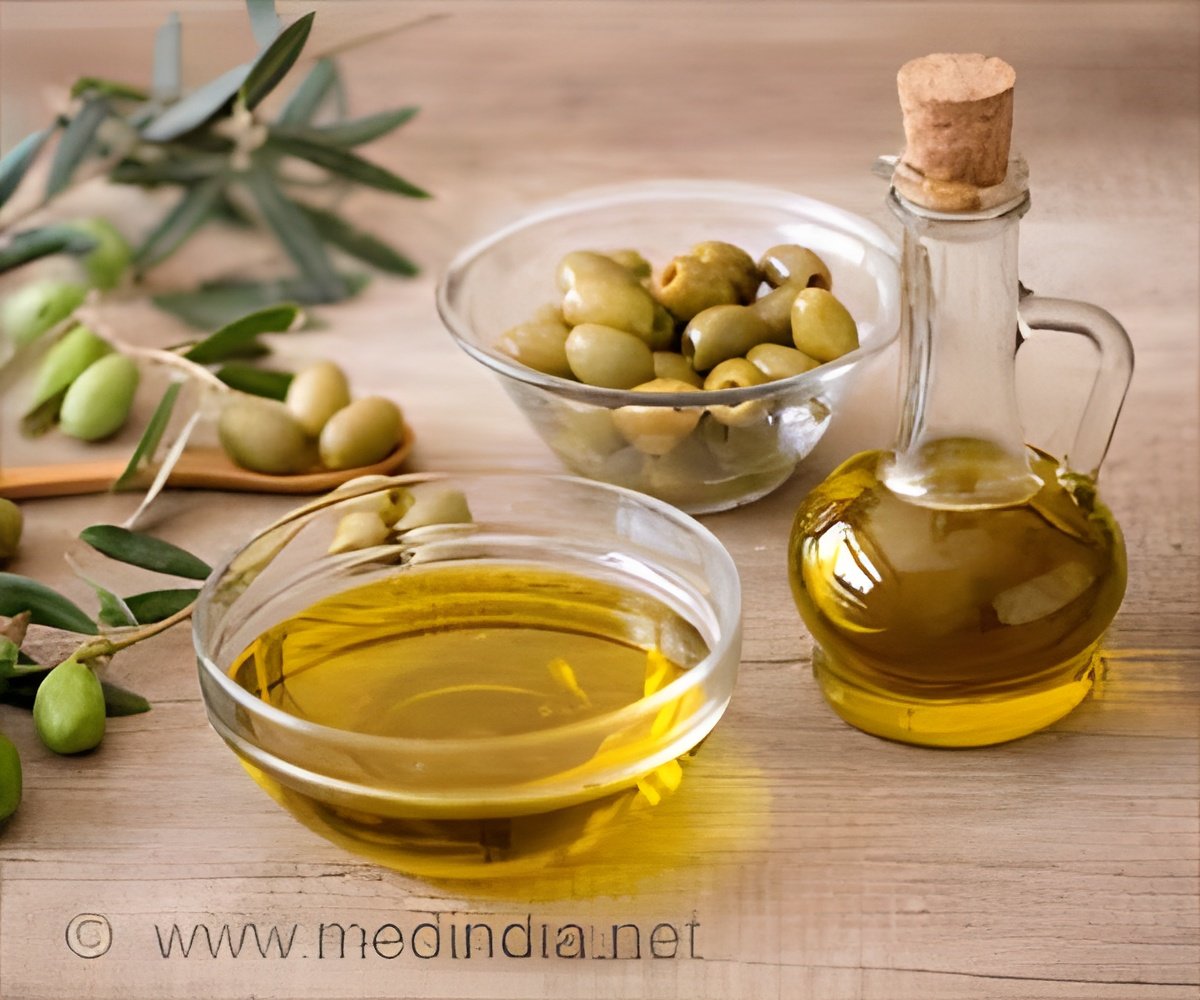Oleic acid, the main constituent of olive oil, has properties that help to prevent cancer, heart disease, Alzheimer’s disease, obesity and to lower cholesterol.

‘Adding olive oil to your diet can keep a wide range of disease such as cancer, heart disease, Alzheimer’s disease and obesity at bay.’
Read More..




This fatty acid is the main constituent of olive oil and is responsible for many health-promoting properties. Oleic acid is produced by the diet and synthesis in the body itself. It is thereby the most abundant monounsaturated fatty acid (MUFA) in the human diet. Read More..
Goodness of Mediterranean Diet
The Mediterranean diet is the most widely recognized diet for preventing disease and aging. The olive tree (Olea europaea L.) is abundant in the Mediterranean basin and olive oil, which is extracted from its fruit, is the most characteristic nutrient and the main fat in this diet, which is also marked by a high vegetable intake, moderate fish consumption, low-moderate dairy consumption, low red meat intake and moderate wine consumption.Importance of Oleic Acid
Oleic acid is the principal MUFA in the human circulatory system. In the brain, it is a major component of membrane phospholipids and abounds in the neuronal myelin sheaths. A significantly decreased level of oleic acid has been observed in the brains of patients suffering from major depressive disorders and Alzheimer’s disease.Like all free fatty acids, oleic acid’s main function is that of an energy molecule and a component of cell membranes. One of its most characteristic effects is its antioxidant properties, since it can directly regulate both the synthesis and the activity of antioxidant enzymes. Another beneficial property is its hypocholesterolaemic effect: it inhibits the expression of proteins associated with cholesterol transport, reducing cholesterol absorption and thus preventing atherosclerosis.
Oleic acid is also recognized to be an anti-cancer molecule because of its inhibitory effects on the overexpression of oncogenes and their effects on programmed cell death. Moreover, oleic acid is generally considered an anti-inflammatory molecule, although this quality is still under debate among scientists.
On the other hand, oleoylethanolamide, a derivative of oleic acid, has anti-inflammatory and antioxidant effects of its own and has now been proposed as a potent therapeutic agent to treat obesity. This underlines the benefits of oleic acid for health. Emerging research suggests that it may influence epigenetic mechanisms (direct modifications of DNA and DNA-associated proteins) and modulation of the immune system, specifically by regulating cells involved in developing inflammation.
Finally, the authors of this study have pointed out that most studies on olive oil have been conducted on animals, hence they warn of the need for further research to confirm the significant properties shown by this molecule and its derivative, oleoylethanolamide, in humans.
Advertisement














